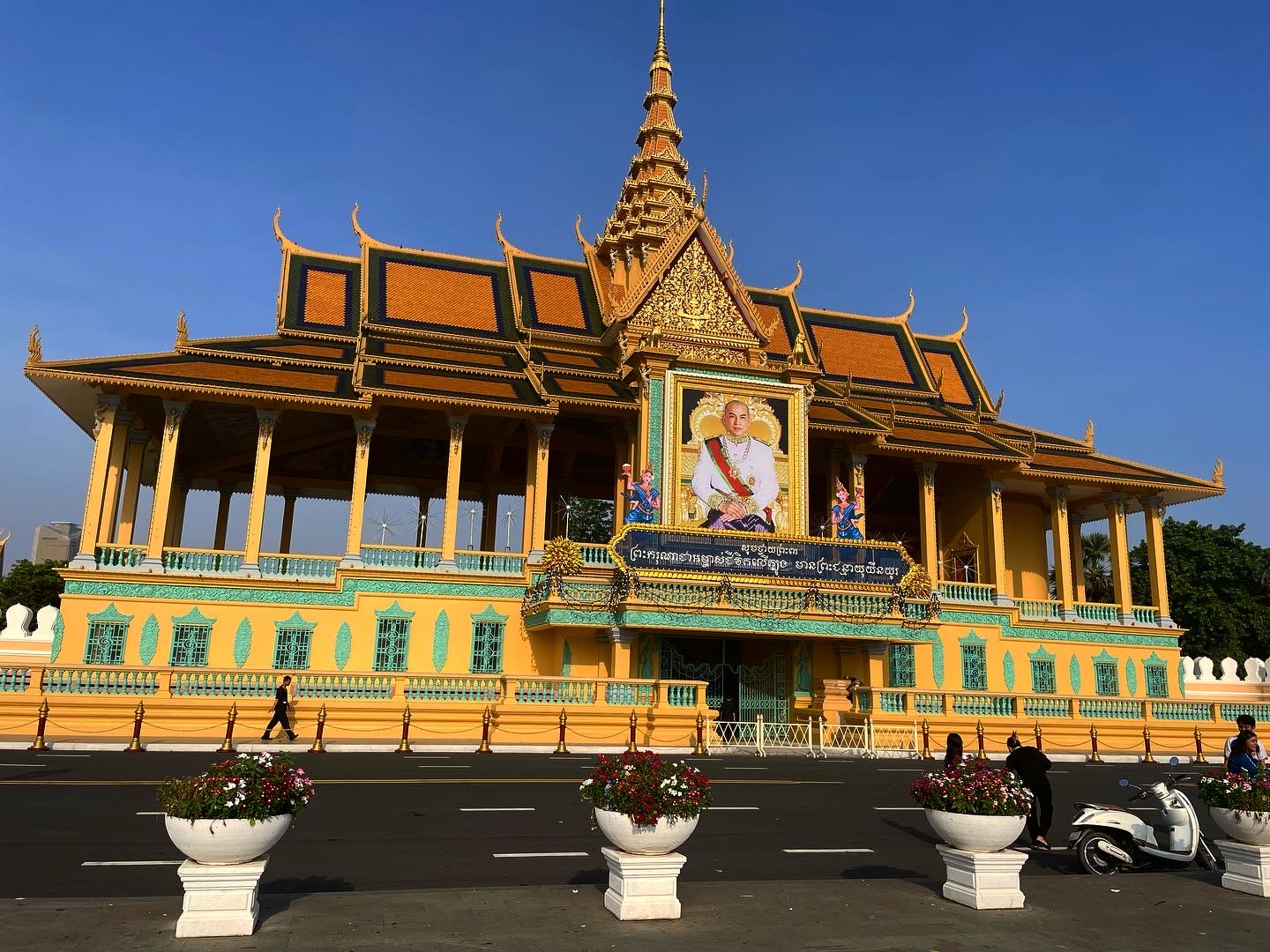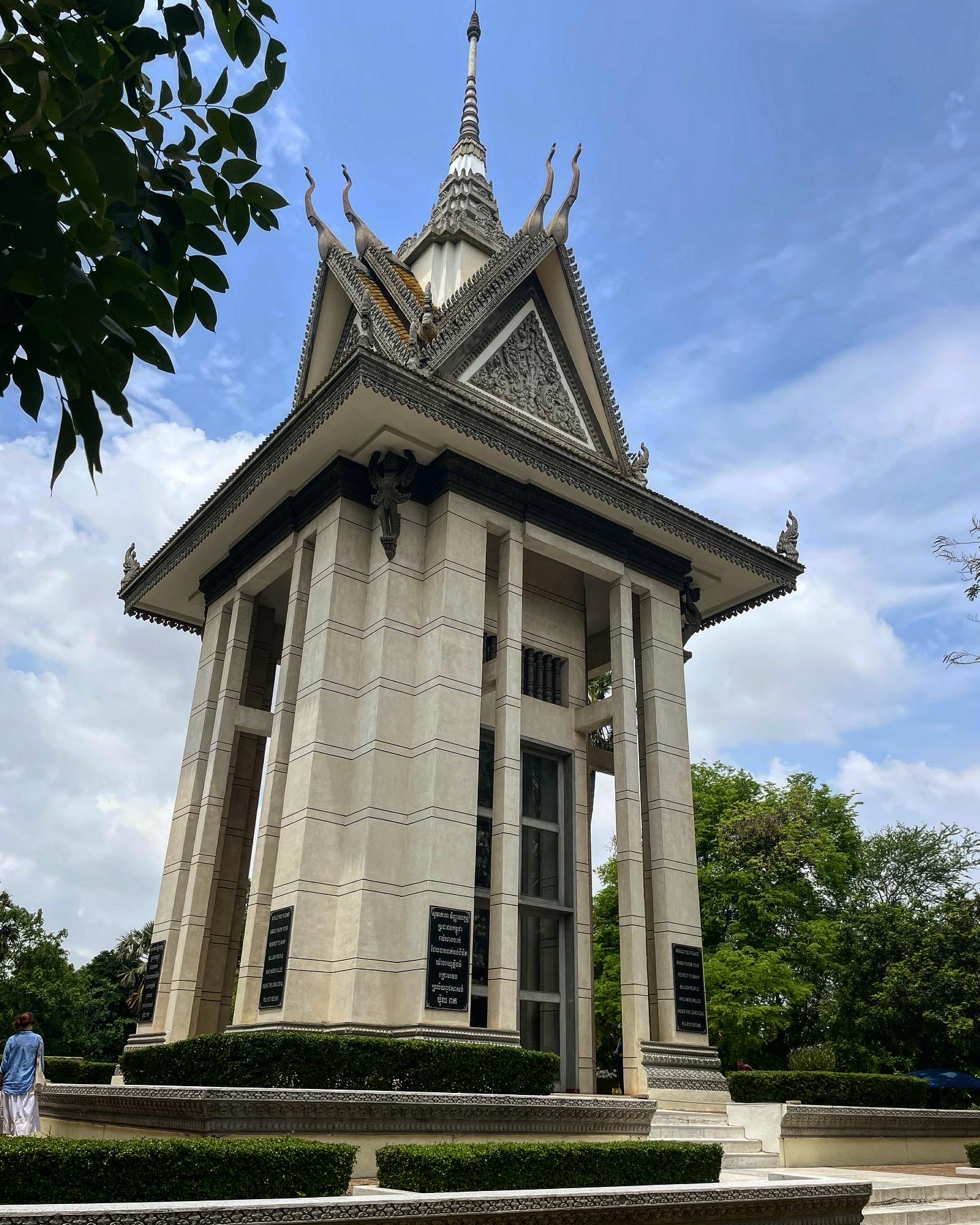Week 1: A warm welcome to Cambodia
My Arrival
As a former athlete, I was pretty sure that I knew what sweating was like, but stepping off of the plane at Phnom Penh airport was an “I don’t think we are in Kansas anymore” moment as I hit the dense air of the afternoon. I had arrived in Cambodia about 3 days before my internship started, hoping that I could get my life and apartment together and adjust to the time change. I am lucky enough to have been connected with a friend from my church who had been living and working in the city for several years. She was an immense source of knowledge when preparing for Cambodia and a huge help when she picked me up from the airport. Traveling for 24 hours with a 12 hour time change really makes you want to crawl in bed and sleep. But considering it was only about noon, I needed to push through. My friend immediately drove me to get lunch and a working SIM card. During lunch, she was able to give me more advice on how to navigate the city.
Within a couple days, I had tackled what I felt like were the necessities: shopping at the market, hailing a Tuk Tuk, and avoiding cars and motos anytime I'm near a street. After the busy finals season and journal competition, I am a little ashamed to say I stayed mostly in my apartment to relax before work began. I was able to spend one morning touring the Royal Palace and walking around the parks that neighbor the riverside. Compared to the busy streets, it was pleasant being around others out for a walk. And getting an early start allowed me to take in the sites as the city woke up. I had only traveled around the United States and Europe so walking through the Palace grounds and pagodas was a brand new architectural experience. Once it was close to noon, I grabbed a bite to eat and a ride back into my air conditioned apartment to escape the sweltering afternoon.
My Work
Open Development Cambodia (ODC) is an NGO committed to their open data website. They provide free and accurate information about the economy, society, environment, and government to promote development and sustainability. Their site is here: https://opendevelopmentcambodia.net/. My research is on Cambodia's technology and digital laws and the impact they may have on the digital economy, particularly the impact on small to midsize businesses (SMEs). In just the past several years, a huge digital economy has sprouted up and has developed even quicker because of COVID-19. Similar to America, there is now an app for everything that one could possibly need: hiring drivers, ordering food, getting groceries, and even paying your bill at a restaurant. I have already spent way too much free time scrolling through their food ordering app looking at the 100s of restaurants to choose from. And unlike Uber Eats, delivery costs are free or a few cents.
Until the last decade, Cambodia lacked regulations in many areas: Internet service providers (ISPs), e-commerce, and websites. Coming from a background in economics, I loved tracking the history of the ISP industry. Without any government involvement, it is a spectacular story of spontaneous order. In fact I can visually see the spontaneous order. The streets are lined with clusters of wire carrying high speed Internet from numerous ISPs to all over the city. The lack of involvement has led to healthy competition, lower prices, and a quickly advancing economy. My SIM card was only $1 with $1 a week plan for more data than I will ever need.
Now, the government has started to enact legislation and regulations. They have proposed the National Internet Gateway: a one stop shop that all Internet service providers must go through, potentially (arguably most definitely) lowering speeds and raising costs. My research will look into legislation and regulations such as this one and determine the impact it will have on SMEs. Because many of these laws are new or not even implemented yet, literature and sources are limited. The most helpful sources are the actual drafts and laws themselves or the impact of similar laws in other countries. I never thought I’d miss Lexis and Westlaw, and I will never take for granted that every American jurisdiction publishes in English. To supplement this gap, I will be preparing a questionnaire to interview a couple dozen relevant stakeholders. This will be direct feedback on what the government and ODC can do (or not do) to help adjust to all of the new laws and regulations.
Weekend Travels
I had recently read First They Killed My Father, a survivor's story of the Khmer Rouge. So to conclude my first week, I took Saturday to learn more about the recent history of Cambodia by going to Choeung Ek and Tuol Sleng.Choeung Ek was a "killing field" outside the city during the Khmer Rouge. It is a mass grave for 20,000 victims and is one of 300 around the country. Tuol Sleng was a prison that held many people during that time. Prisoners were kept in more than terrible conditions, tortured, and usually sent to Choeung Ek. Their brutal history is not ancient history. These events occurred within the last 50 years and the effects on the people can still be seen today. While a somber day to say the least, I gained even more appreciation for the people and culture that surrounds me.
I currently am writing this blog post on the way to Siem Reap, a province northwest of Phnom Penh, for work and to visit Angkor Wat. Our little caravan is experiencing car trouble at the moment, so stay tuned for more updates next week!

